“It should not be removed”
Prof. Dr. Nguyen Dinh Duc, Chairman of the Council of the University of Technology, Vietnam National University, Hanoi , shared that it is undeniable that English is an important and necessary skill for personal and national development in the context of integration.
In fact, IELTS brings a clear advantage to urban students who have economic conditions and access to a good foreign language learning environment. However, students in remote areas who have little opportunity to prepare for the exam will have limited opportunities for admission. This goes against the spirit of “fairness in education”.
According to Mr. Duc, since schools have been autonomous in recruiting students, and when IELTS certificates were still "rare", they have been used as an admission method, even giving priority to direct admission to universities.
But in reality, IELTS is just a means, very important, but cannot replace other knowledge and abilities, especially STEM knowledge foundations, that's why many students have good IELTS, but in the learning process they encounter difficulties, especially in engineering and technology fields, resulting in having to drop out of school halfway or change schools.
“But completely eliminating it is not advisable, because it will lose the motivation to learn a foreign language and cut off an important integration tool. Keeping and sanctifying IELTS as a tool and method for direct admission and priority admission as it is now is also not optimal, because it can easily create social inequality, and does not fully assess the learner's ability to continue studying at university level,” Mr. Duc stated his opinion.

Dr. Le Anh Duc - Head of Training Management Department (National Economics University) said that the number of candidates in this category has increased gradually over the years. From 2021 to 2024, the school will increase the enrollment quota for this group of candidates by about 5% per year.
Dr. Le Anh Duc explained the choice of admission method using international certificates: “Analysis of learning outcomes at the National Economics University also shows that this is the group of students with the best learning outcomes. These groups of students are suitable for the output requirements of the training programs of the National Economics University (from core competency requirements to English skills, etc.)”.

Mr. Duc also added that the strategy of the Training Management Department (National Economics University) is to gradually increase the proportion of interdisciplinary/cross-disciplinary English-language training programs (taught and studied in English) with international standard curriculum and learning materials, etc. to attract excellent candidates who are passionate and ambitious to pursue their favorite field of study.
Master Nguyen Quang Trung - Deputy Head of the Department of Communications and Admissions, University of Commerce said that in 2025, for all training programs, especially standard training programs, candidates will have to be admitted by converting foreign language certificates with the results of the high school graduation exam in 2 subjects.
According to Mr. Trung, in reality, for economic schools today, there are very high requirements and demands for practicality and international integration, and foreign languages are also related to student output standards, and are also a tool for students after graduation to be able to work in businesses in an international environment.
What is the solution?
According to experts, in order for IELTS admission to truly become a driving force for development instead of a barrier, Vietnam needs to take strategic steps.
Providing a solution to this problem, Prof. Dr. Nguyen Dinh Duc, Chairman of the Council of the University of Technology, Vietnam National University, Hanoi, said that, in terms of adjustment (the most reasonable option), IELTS should only be one of many admission criteria, and should only be considered to replace the foreign language subject in the high school exam or the English subject in the admission combination; IELTS should not be used to completely replace traditional combinations or to prioritize direct admission to university.
Mr. Duc also said that, in fact, society has also recognized this issue and in the past 1-2 years, many universities, including the University of Technology and VNU, have adjusted accordingly. IELTS certificates can also be converted into equivalent high school graduation scores for English; priority points are added for students studying international programs and programs taught in English.

Mr. Nguyen Tran Binh An, a master's candidate in Applied Linguistics for the future at the University of York (UK), the goal of encouraging English proficiency is necessary in the context of today's integration, but instead of relying on a single certificate with high costs, we can apply other solutions such as: improving English programs in schools and universities, improving the quality of foreign language teachers, setting foreign language output standards for students, encouraging the use of other certificates such as VSTEP, Cambridge, Aptis, TOEFL... with lower exam and tuition fees, as well as more practical and diverse requirements.
Dr. Sai Cong Hong, Association of Vietnamese Universities and Colleges, said that the increase in candidates applying for university admission using IELTS reflects the integration aspirations of the younger generation, along with the responsiveness of parents and schools. However, if there is no adjustment, this trend could deepen the educational gap and cause significant foreign currency loss.
Mr. Hong said that the problem is to maintain the spirit of integration without being dependent. We need a reliable domestic foreign language proficiency assessment system, combined with a fair support policy so that IELTS becomes a voluntary choice, an added value, rather than a "compulsory ticket" to open the door to university. Only then will this trend truly become a long-term benefit for both learners and the Vietnamese education system.
First, it is necessary to develop a certificate exam according to Vietnam's 6-level competency framework to ensure quality and become a "national English exam" that meets international standards, recognized by domestic and foreign universities, in order to reduce dependence on foreign certificates and retain financial resources.
The Ministry of Education and Training should unify the IELTS score conversion framework between schools, helping candidates have a clear direction and ensuring fairness.
Policies to support disadvantaged groups are indispensable: reducing or exempting exam fees, organizing local exam sites and providing free review materials so that all students have equal access.
Finally, it is necessary to promote the development of domestic English resources from textbooks, question banks to test preparation platforms compiled and copyrighted by Vietnamese people, which is both cost-effective and suitable for cultural and educational identity.
“Building a “Made in Vietnam” exam, if properly invested in, will save foreign currency, increase educational sovereignty and ensure content is suitable for learners,” Mr. Hong stated his opinion.

University Admissions 2025: What Trends Do 'Strange' Admissions Scores Reflect?

Injustice for students

Hanoi: No cultural subjects right after the opening ceremony
Source: https://tienphong.vn/cong-diem-ielts-trong-tuyen-sinh-co-nen-khong-post1771176.tpo



![[Photo] Images of the State-level preliminary rehearsal of the military parade at Ba Dinh Square](https://vphoto.vietnam.vn/thumb/1200x675/vietnam/resource/IMAGE/2025/8/27/807e4479c81f408ca16b916ba381b667)



![[Photo] Parade blocks pass through Hang Khay-Trang Tien during the preliminary rehearsal](https://vphoto.vietnam.vn/thumb/1200x675/vietnam/resource/IMAGE/2025/8/27/456962fff72d40269327ac1d01426969)

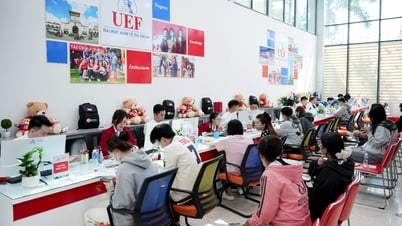

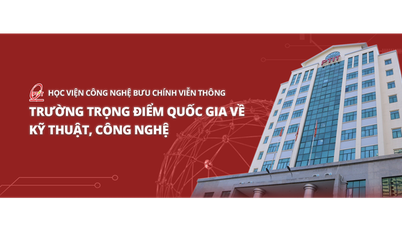












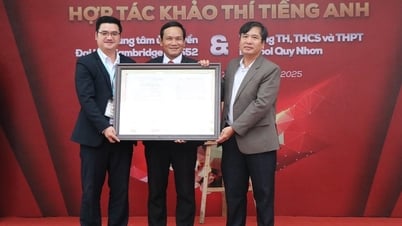

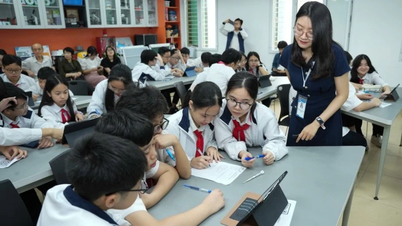








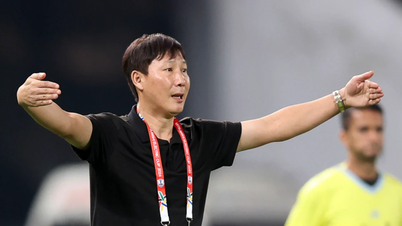



























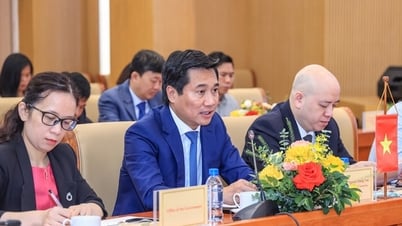







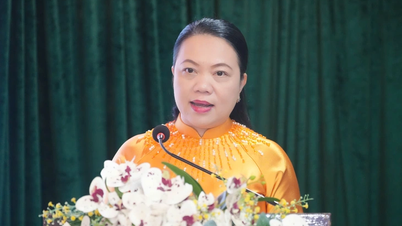
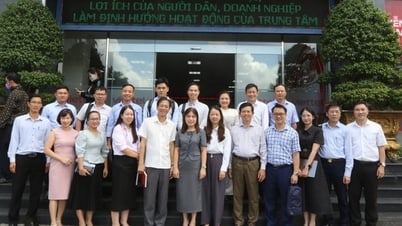





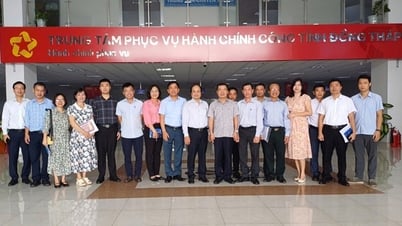
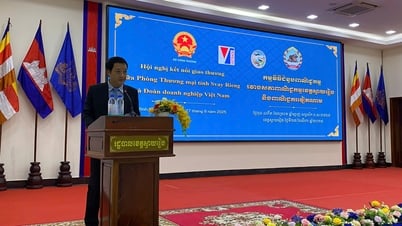
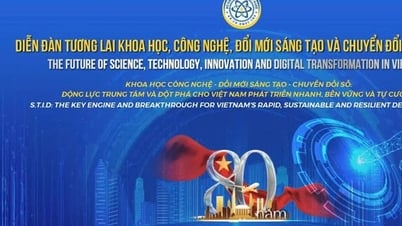






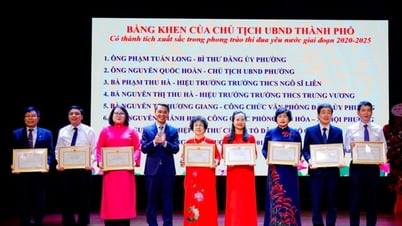


















Comment (0)